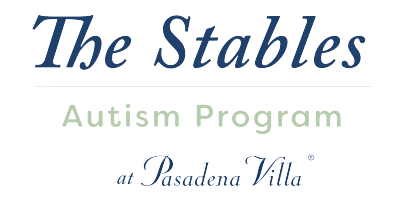Cognitive Behavioral Therapy (CBT)
Home » Our Program » Treatment Methods » Cognitive Behavioral Therapy (CBT)
What is Cognitive Behavioral Therapy (CBT)
Cognitive behavioral therapy (CBT) is a structured, evidence-based therapy focusing on the connection between thoughts, feelings, and behaviors. Developed by Dr. Aaron T. Beck in the 1960s, CBT aims to help individuals understand and change negative thought patterns and behaviors that may be causing distress or hindering personal growth.
CBT’s foundation is the idea that our thoughts (cognitions) influence our emotions and behaviors. This therapy teaches individuals to identify and challenge unhelpful thought patterns and replace them with more constructive ones. This process, in turn, can lead to positive changes in emotions and behaviors.
How CBT Benefits Individuals with Autism Spectrum Disorder (ASD)
Cognitive behavioral therapy (CBT) offers a comprehensive approach to addressing the diverse challenges faced by individuals with autism spectrum disorder (ASD). This helps people improve their social skills. It teaches them to understand social cues, see things from different perspectives, and communicate effectively. As a result, they boost their confidence and improve their relationships.
CBT helps people learn how to handle anxiety and stress caused by unexpected changes or sensory sensitivities. It teaches practical techniques to stay calm and build resilience. It helps with emotions by giving tools to recognize, understand, and handle strong feelings, leading to improved emotional control and stability.
Additionally, CBT helps reduce repetitive behaviors by identifying triggers and offering strategies for their reduction or replacement with more adaptive ones. Lastly, it enhances problem-solving skills, empowering adults with ASD to navigate daily challenges with increased confidence.
Components in Cognitive Behavioral Therapy (CBT) for ASD
Cognitive behavioral therapy (CBT) for individuals with ASD incorporates various components tailored to their specific needs. Here are some key components of CBT when applied to ASD:
- Functional Analysis: CBT begins with thoroughly assessing the client’s thoughts, emotions, and behaviors. This analysis helps identify patterns and triggers specific to the person’s ASD-related challenges.
- Setting Realistic Goals: Once we identify the challenges, CBT establishes clear and achievable goals. These goals are individualized, considering the person’s unique strengths and difficulties.
- Social Skills Training: A significant focus of CBT for ASD is on improving social skills. This includes learning to initiate and maintain conversations, interpret nonverbal cues, and understand social norms and expectations.
- Anxiety and Stress Management Techniques: CBT provides practical strategies for managing anxiety and stress. This may include relaxation exercises, mindfulness practices, and cognitive restructuring to address anxious thoughts.
- Emotion Recognition and Regulation: Individuals learn to recognize and label their emotions accurately through emotion recognition and regulation training. They also learn emotion regulation techniques like deep breathing, grounding exercises, and self-soothing strategies.
- Problem-Solving and Flexibility: CBT emphasizes problem-solving skills and encourages individuals to approach challenges with flexibility. This can be especially valuable for individuals with ASD, who may struggle with rigid thinking patterns.
Using CBT in Treatment for Autism Spectrum Disorder (ASD)
Utilizing Cognitive behavioral therapy (CBT) in treating ASD requires a well-structured approach and the involvement of trained ASD treatment professionals. Here’s how you can effectively apply CBT.
- Personalized Treatment Plans: This plan outlines therapy goals, strategies, and expected results, all customized to the individual’s specific needs.
- Therapist-Patient Collaboration: The therapist-patient collaboration involves one-on-one sessions with a trained therapist specializing in ASD to conduct CBT. The therapist works closely with the individual, adapting the therapy to their pace and preferences.
- Family Involvement: Loved ones are encouraged to participate in family therapy to learn how to support the individual’s goals. Family involvement can enhance the effectiveness of treatment and promote consistency in applying learned skills.
- Monitoring Progress: Throughout the course of therapy, we regularly monitor and adjust progress as needed. This ensures that the individual is making meaningful strides toward their goals.
- Long-Term Support: While CBT can lead to significant improvements, it’s important to recognize that progress may take time. Therapy may require long-term support to maintain and build upon the gains made.
At The Stables Autism Program, we believe Cognitive Behavioral Therapy (CBT) is a valuable tool for adults with Autism Spectrum Disorder (ASD). CBT can assist individuals with ASD in enhancing their social skills. It can also aid in managing anxiety and stress, controlling emotions, and improving problem-solving abilities. CBT helps people with ASD live better lives when used in a personalized treatment plan.
Remember that with the proper support and a comprehensive treatment plan, individuals with ASD can thrive and achieve their full potential. Take the next step, and contact us today to learn more about our program.


 Call
Call